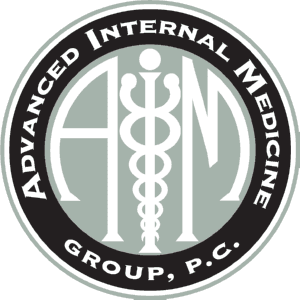AIM Group In East Hills, NY is here to offer strategies for a healthy work-life balance.
What Happens Without An Effective Work-Life Balance?
A lack of good work-life balance can have significant negative impacts on an individual’s mental health. Here are some ways in which it can affect someone:
1. Increased Stress: Long working hours, constant connectivity to work, and the inability to switch off can lead to chronic stress. This stress can manifest in physical symptoms such as headaches, fatigue, and sleep disturbances, as well as emotional symptoms like irritability and anxiety.
2. Burnout: When someone consistently devotes excessive time and energy to work, they may experience burnout. Burnout is characterized by emotional exhaustion, a sense of cynicism or detachment from work, and a feeling of reduced personal accomplishment. It can leave individuals feeling drained, hopeless, and disengaged.
3. Mental Fatigue: Balancing a demanding work schedule with personal life can lead to mental fatigue. This can result in reduced cognitive function, difficulty concentrating, and impaired decision-making abilities.
4. Physical Health Impact: Poor work-life balance often leads to neglecting physical health, such as skipping exercise, eating unhealthy foods, and not getting enough sleep. These factors can contribute to a decline in overall health and exacerbate mental health issues.
5. Strained Relationships: Spending excessive time at work can strain relationships with family and friends. It may lead to conflicts, decreased quality time, and feelings of isolation, which can negatively impact mental well-being.
6. Lack of Personal Time: Engaging in hobbies, relaxation, and leisure activities is essential for mental rejuvenation. A lack of personal time due to work demands can deprive individuals of these activities that contribute to a sense of fulfillment and happiness.
7. Reduced Self-Care: People with poor work-life balance often neglect self-care routines, such as meditation, exercise, or engaging in hobbies they enjoy. This lack of self-care can contribute to feelings of low self-esteem and reduced overall life satisfaction.
8. Depression and Anxiety: Prolonged periods of work-related stress and imbalance can increase the risk of developing depression and anxiety disorders. The constant pressure and feelings of being overwhelmed can contribute to the development of these mental health conditions.4
9. Lowered Job Satisfaction: Paradoxically, an excessive focus on work can lead to decreased job satisfaction. When work takes up too much of an individual’s time and energy, they may start to resent their job, which in turn affects their overall well-being.
10. Loss of Enjoyment: With an imbalanced lifestyle, people might find it challenging to engage in activities they once enjoyed. This loss of interest in previously pleasurable activities can contribute to feelings of emptiness and unhappiness.
Achieving a good work-life balance is crucial for maintaining positive mental health. It allows individuals to recharge, connect with loved ones, pursue personal interests, and take care of their well-being. Employers and individuals alike should prioritize strategies and practices that promote a healthy equilibrium between work and personal life.
5 Strategies To Integrate For A Healthy Work-Life Balance
Striving for work-life balance doesn’t entail compromising on ambitions or achievements; rather, it involves placing importance on what truly holds value in life. Pursuing this equilibrium empowers us to lead lives that are more gratifying, both in personal and professional domains. By tending to our mental and physical well-being, nurturing relationships, and exploring our passions, we evolve into individuals who are not only happier and healthier but also more productive. In today’s fiercely competitive world, achieving work-life balance isn’t merely a choice; it stands as a pivotal element for a life that is both purposeful and prosperous.
- Establish Clear Boundaries: Create distinct boundaries between work and personal life to ensure that professional obligations do not encroach upon personal time. Define specific working hours and endeavor to adhere to them consistently. Steer clear of checking work-related emails or attending work calls during your designated off-hours.
- Effectively Prioritize and Manage Time: Formulate a task list or adopt a time management technique that resonates with you, such as the Pomodoro Technique. Arrange tasks in order of their significance and deadlines. Proficient time management will enable you to accomplish tasks efficiently, freeing up more time for personal endeavors.
- Master the Art of Saying No: Numerous individuals grapple with overcommitting themselves, whether in their work or personal lives. It is paramount to recognize your limitations and be willing to decline additional responsibilities or social commitments when they impinge upon your work-life equilibrium.
- Allocate Time for Self-Care: Engage in activities that foster relaxation and well-being on a regular basis. This could encompass physical exercises, hobbies, quality time with loved ones, reading, or practicing meditation. Nurturing your physical and mental health will contribute to a heightened sense of balance and concentration, both in your work and personal spheres.
- Exercise Prudent Use of Technology: While technology can enhance productivity, it can also blur the lines between work and personal life. Lay down guidelines for using technology during non-working hours to prevent being perpetually available for work-related matters. Disable work-related notifications on your devices when you are not actively engaged in work.
Bear in mind that attaining work-life balance is an ongoing journey that may necessitate adjustments in response to alterations in your professional or personal circumstances. It is essential to maintain flexibility and treat yourself with kindness as you strive to identify the optimal balance that aligns with your distinct situation and requirements.

